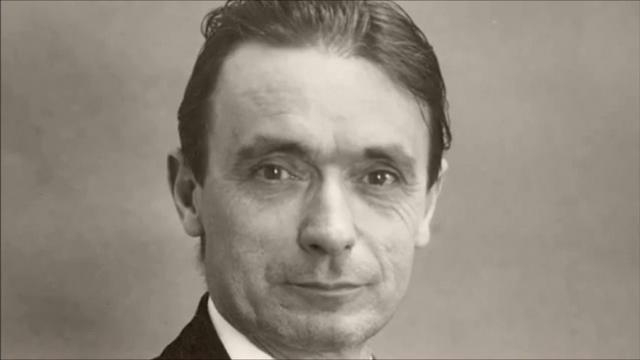Influential Figures

Rudolf Steiner
Rudolf Steiner was an Austrian-born German philosopher and author known for his contributions to medicine, education, agriculture, and various scientific fields. While many biographies outline his upbringing and significant life events, those interested in his work often seek to understand his importance. Steiner referred to his studies as spiritual science, aiming to create a science of the spirit as rigorous as that of the material world. He believed that we all have numerous spiritual experiences, though we may not be aware of them, which aligns with modern neuroscience’s view that we only consciously process a small fraction of sensory information. In agriculture and horticulture, some individuals possess a remarkable intuition, allowing them to instinctively recognise signs of health or need in animals and plants. We often describe such people as having “green fingers” or a keen sense of when livestock are well, reflecting their ability to turn subtle observations into deeper knowledge.
Biodynamics came into being after Steiner gave a series of lectures to farmers in 1924, which inspired a new way to integrate scientific understanding with a recognition of spirit in land and nature. Since then biodynamics has continued to evolve and be shaped by many other influential figures around the globe.

Maria Thun
In the early 1940s, Maria Thun was introduced to biodynamic farmers, sparking her interest in these methods. She began attending introductory courses at the Institute for Biodynamic Research in Darmstadt, where she learned about Franz Rulni’s planting calendar. Though his advice often relied on broad, traditional rules Maria was curious to see if Rulni’s calendar, which linked planting to star constellations, could help her judge the right sowing times like her father did.
Maria started experimenting with radishes and found notable differences in crops sown on different days, even with identical soil and seeds. Inspired by Rudolf Steiner’s ideas on cosmic forces and plant growth, she studied the astronomical calendar of the Goetheanum, learning that the moon moves through different zodiac constellations every two or three days. This led her to explore how radishes varied in form and size based on their planting timing.
Throughout the 1950s, Maria continued her experiments with various crops, ultimately categorising the moon’s passage through the zodiac into four types of days—root, leaf, flower and fruit—each indicating the best planting times for different plants.

Ehrenfried Pfeiffer
Ehrenfried Pfeiffer began collaborating with Rudolf Steiner in 1920, and after Steiner’s death in 1925, he worked at the private research laboratory at the Goetheanum in Dornach, Switzerland. He later became the manager and director of the biodynamic Loverendale farm in Domburg, Netherlands, established to support the agricultural studies from the Goetheanum. Pfeiffer coordinated international efforts to test and develop Steiner’s Agriculture Course of 1924 at the Natural Science Section of the Goetheanum. His influential book, Bio-Dynamic Farming and Gardening, was published in 1938 in multiple languages, including English, German, Dutch, French, and Italian. Additionally, he organised Britain’s first biodynamics conference, the Betteshanger Summer School and Conference, at Lord Northbourne’s estate in Kent. This conference is often seen as the “missing link” between biodynamic agriculture and organic farming, as Lord Northbourne published Look to the Land the following year, coining the term “organic farming”.
Post Categories
- Animals
- Bees
- Beginning Biodynamics
- Biodynamic Case Studies
- Biodynamic Preparations
- Biodynamics for children
- Biodynamics in Schools
- Compost
- Cosmic Influences
- Cows + Ethical Calf Raising
- CPP
- Events
- Farm as an Organism
- Featured
- Growing Food
- Harvest Magazine Article
- Hua Parakore
- Latest News
- Nutrition + Food
- Past Events
- Pest Management
- Prep500
- Seasons
- Steiner School
- Stirring + Water + Flowform
- Sustainability + Climate
- Wine
Login Status
Join our newsletter!
Contact Details
E-mail:

